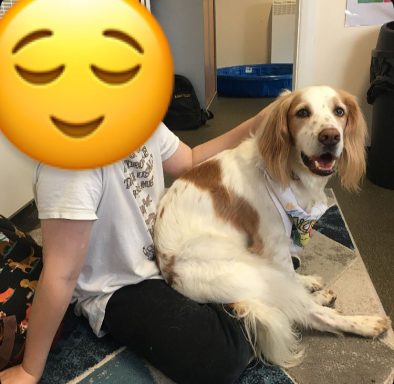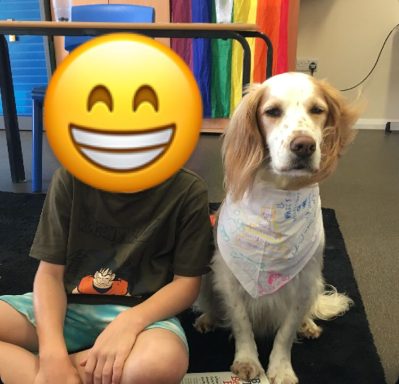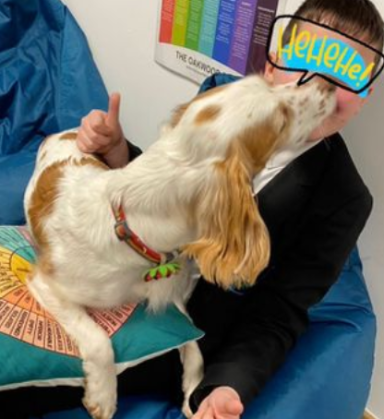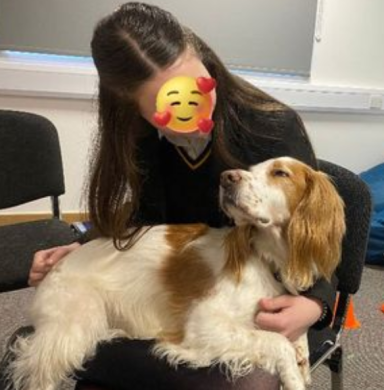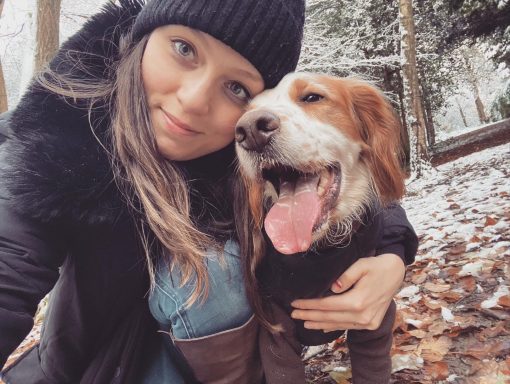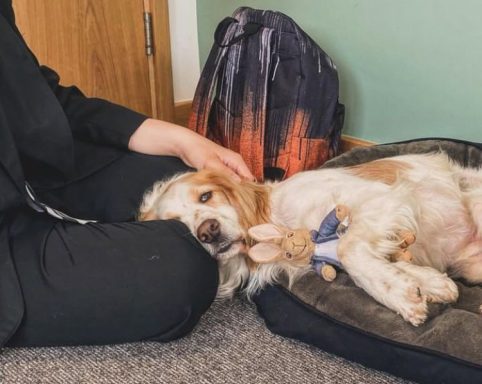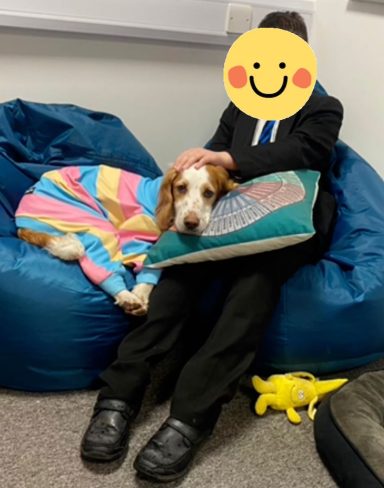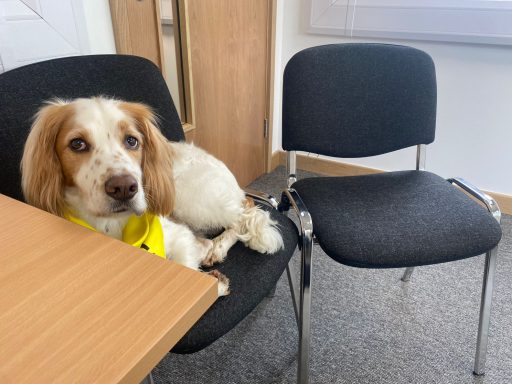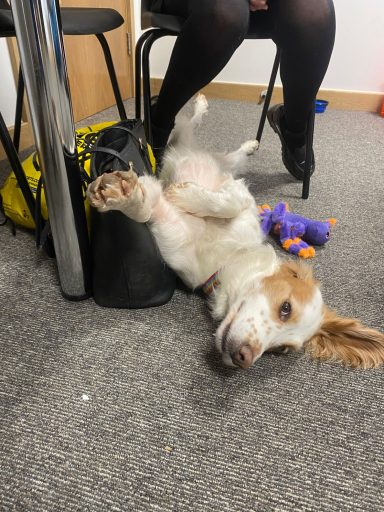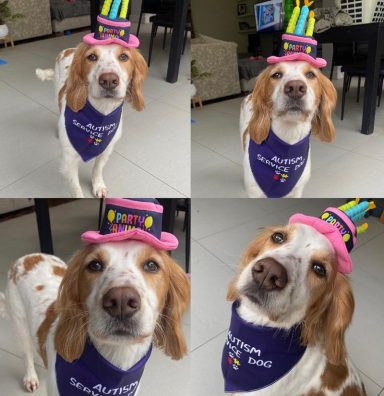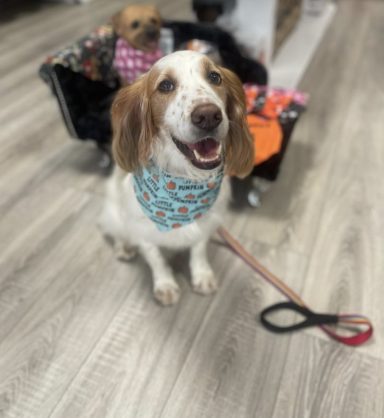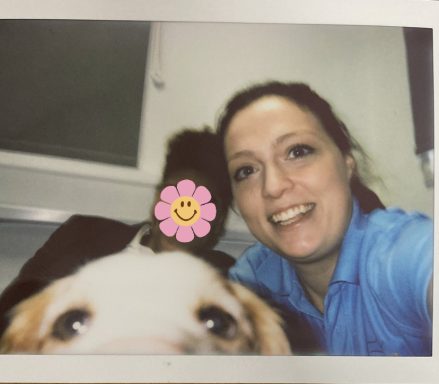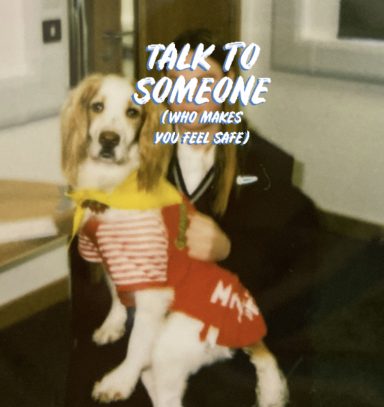Why we exist...
We are here because we celebrate the natural variation of human brains—everyone has the right to authenticity, meaningful connection and the most relevant support. Sometimes that support comes from a therapy dog, unleashing a paws-itive bond.
Statistically, 15–20% of young people are neurodiverse, yet most spaces still default to neurotypical norms and one-size-fits-all methods—an oppressive mismatch that denies them the fair shake they deserve. By adolescence, 1 in 6 children meets the criteria for a mental health problem—and for neurodiverse youth that climbs to 1 in 2. Data indicate up to 70% of neurodivergent individuals have at least one mental health condition, with nearly half of those managing multiple challenges alongside their neuro-differences.
Studies show neurodivergent kids often face a mental health crisis by age 12, leading to self-injurious or complex behaviours that can lead to a troubled adulthood not reaching potential. Traditional wellbeing interventions and structural barriers fall short—they erode psychological safety, keep cortisol (stress hormone) in overdrive, and trigger fight-flight-freeze-or-fawn responses. That daily trauma loop lays the groundwork for secondary mental health conditions, insecure attachments and a shaky sense of self.
The neurodiversity population can be organised into certain neurotype groups, such as Autism, ADHD, specific learning differences, sensory or motor variations, communication styles and even acquired divergence such as brain injury or trauma. Neurodiversity is referred as the natural variation in human brain function and behavior, that cannot be undone, cured, or treated. Thus, acknowledgement of differences to how people think, learn, and process information should be accepted followed by accountability and positive action.
While some neurodevelopmental conditions associated with neurodiversity may have challenges that can benefit from skill building, the underlying neurodiversity itself should not be fixed, managed, or expected to cope within neurotypical conformity. Yet, a lot of support models still prioritise coping and resilience as the priority for neurodivergent people, even though they have a heck-load of resilience already and require priorities such as systematic change actions, learning about themselves, how to look after and advocate for themselves, build confidence, and self-acceptance. Strength-based approaches, empowering voices, collaborative learning, and fostering passionate interests (like dogs for some people!) should be emphasized instead. FETCH embraces and advocates for neurodiversity-affirming therapy, but tapping into people's love and connection with animals to assist the process.
Why dogs? Well, the magic of the human–dog has been appreciated for a long time! And an unconditional human-loving partner, like Mickey the Therapy Dog, can help engage and reassure young people who are navigating adversity. Dog-assisted interventions reliably lower cortisol (stress hormone), boost oxytocin (social bonding hormone), enhance dopamine (intrinsic feedback and reward) and endorphins (natural pain relievers and nervous system boosters), and soothe the amygdala (the system responsible for emotional regulation, social cognition and behaviour responses)—rewiring stress circuits toward the calm, curiousity, boundaries, and learning-ready pathways. School-based trials prove that even when the pup takes a break, students and staff stay more engaged and less burnt out in both mainstream and SEN settings.
So here we are, offering an alternative, pup-powered service that shows youth that they are accepted and can be offered support that feels more comfortable. With dogs magical powers, we can tap into neuroplasticity—our brain’s knack for forging new connections—replacing stress narratives with trails of healing, growth and joy as fight-flight-freeze-fawn gives way to safety, self-care, reflection, and more productive neuroception (the subconscious process where our nervous system detects cues of safety or danger in our environment).
Join the pack! Be part of the rise in neurodiversity-affirming practice, the dog way. There’s no “typical” way to resolve stress of course—but we welcome you to explore how dog-assisted intervention can assist you or your organisation.
Gallery

Unleash Youth Towards a Meaningful Journey
Help us create meaningful experiences for children navigating neurodiversity.
Your support enables us to expand our services and reach more children, families, and organisations in need.

